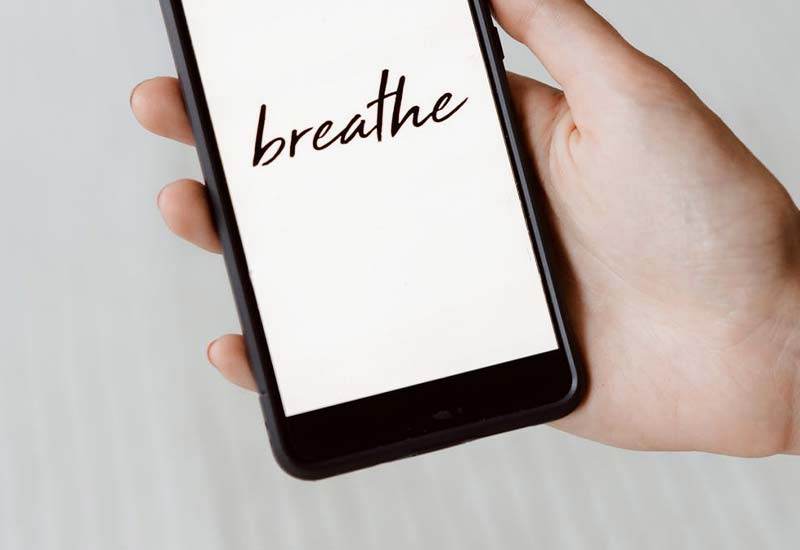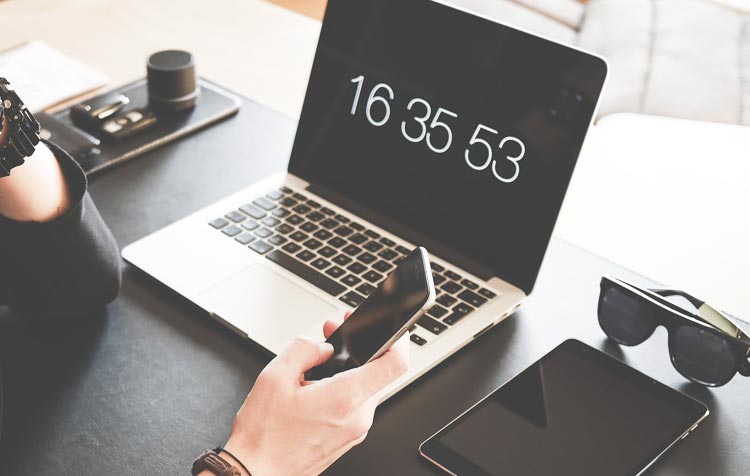How can you reduce your screen time? We are in the middle of the age of digitalization. Since around 2010, I've basically been working on my PC for around 10 hours a day, and apart from that I also use my TV and smartphone. As a result, my eyes also suffer - logically, headaches are not long in coming. As a result, I consciously do without digital devices for a few hours - and suddenly I feel bored. A warning signal! Whether at work, in your private life, or both - now at the latest is the time to minimize the time you spend using your computer, cell phone, and the like.
In this article, I would like to share my most important learnings and tips with you so that you too can reduce your screen time and protect the health of your eyes. Let's go!
In advance as always a short Table of contents about the contribution:
- Making advantages aware
- Set clear limit
- Set up technology free zone
- Use apps for monitoring
- 20-20-20 rule comply
- Make smartphone uninteresting
- Find meaningful offline activities
- Formulate clear goals & measures
- Allow time for breaks
- Do digital detox
Notice: By the way, this article is deliberately not called Digital Detoxbecause for me the term describes a complete renunciation of digital devices over a certain period of time.
1. make yourself aware of the advantages!

Why should we reduce screen time at all? This is the question we should first answer in no uncertain terms so that we can actually follow through with our plan. Here are the pretty plausible answers:
- Easy on the eyes (by using your vision over short but also long distances).
- Become more relaxed (and reduce stress from too much stimuli and information).
- Increased well-being (through more natural everyday behavior without technology).
- More time for family and friends (due to less distraction)
- Higher productivity on the job (see also Tips for more productive work)
- Sleep better (see also Tips for better sleep)
- Become more energetic (see also Tips for more energy in everyday life)
- Increase creativity (with the calm comes back also the creative intelligence)
- Increase perception (View and appreciation for the little things in everyday life).
This list could be continued almost ad infinitum. If you can think of any other reasons for reduced screen time that should not be missing here, feel free to leave me a comment.
2. set yourself a clear limit!
You basically work in the office every day? Then take care of clear limits to the useful life and make sure that you do not exceed them. Take breaks in between to give your eyes a chance to relax. Especially to reduce screen time in your free time, you should draw a clear line. For example, "Watch no more than two episodes of your favorite show a day" or "Watch no more than half an hour of Instagram a day" or something similar.
Tip: If you have trouble sticking to such rules even on your time off, you're in for a real challenge. For example, in the linked post, I give you the most important Tips against cell phone addiction.
3. set up a technology-free zone for yourself
When your tech gadgets are smiling at you from every corner of your home, it's naturally difficult to resist them. That's why you should set up a space that's truly free of any technology and exclusively for offline activities is used. You should spend some time here every day!
4. use apps for monitoring
Android and Apple devices fortunately come with the tools for controlled screen time pre-installed. "Digital Wellbeing" (on Android) and "Screen Time" (on Apple) show you exactly how long you spend in front of the screen every day and what you spend your time doing on the Internet. You can also monitor your Control usage behavior very well with the tools and ultimately reduce the duration of your online activities.
But of course, you can also use third-party apps. Here are some recommended examples:
- Digitox
- QualityTime
- Screen Time & Time Tracker
Tip: At this point I would also like to tell you about my article on sustainable surfing on the internet recommend! Because if you are already on the screen, then also as environmentally friendly as possible!
5. keep the 20-20-20 rule
There is still general disagreement among health experts about the extent to which staring at a screen has serious consequences for eye health. But to prevent your eyes from getting dry and tired, you should definitely apply the 20-20-20 rule of the Californian optician Jeffrey Anshel. For every 20 minutes on screen, you look at an object at least 20 feet (that's about 6 meters) away from you for 20 seconds. This way you can relax your eyes and give them a short break.
6. make your smartphone uninteresting

The main reason we spend so much time on screens, even away from work, is that we obviously don't like the content. more interesting than anything else find! Fortunately, a smartphone can also become uninteresting with the following tips:
- Uninstall unimportant apps (only the few are really important!)
- Disable push messages and advertising
- Set your smartphone to silent
- Set your screen to black and white
7. find useful offline alternatives
When we reach for our cell phones out of boredom, we don't seem to have more exciting alternatives away from the screen. So by getting exciting offline activities you can reduce your screen time in the simplest way possible. Here are a few ideas for inspiration:
- Read books (how you manage to read more books)
- Meet friends
- Participate in demonstrations
- Go to the stadium
- Work on mercy farms
- Exercise regularly (set ambitious goals!)
- …
The next time you reach for your smartphone for no apparent reason, you'll do 25 sit-ups - or an entire exercise session. Is that motivation enough? Of course, these are just a few examples - the offline world (the actual world away from our screens) is open to us! 😉
Tip: It just occurred to me that the principle of "listening instead of watching" also reduces your screen time and saves your eyes! So, for example, listen to a podcast on a certain topic instead of watching a documentary on TV or a few YouTube videos.
8. formulate clear goals
What do you want to achieve? And how do you want to achieve it? We often answer our cell phones out of habit or boredom. Self-imposed rules and goals help us break out of old habits.
I have some examples for you on this as well:
- Only check messenger messages and emails 3 times a day (e.g. at 10 a.m., 2 p.m. and 6 p.m.)
- In the morning only after breakfast the first time look at the cell phone (for only 5 minutes)
- Never go to the toilet with smartphone (by the way, the WC is a very good technology-free room!)
- The smartphone stays in your pocket while you work (and not on the desk)
- Meeting friends at least two days a week (arrange in the previous week already and make dingfest!)
9. set aside time for breaks

I already mentioned it: give yourself a break regularly. Until recently, I always tried to "plow through". But in my experience, just 15 minutes of screen pauseIn the end, your mind and eyes will relax and you will gain new strength to continue working more effectively and with greater concentration.
10. do digital detox
Now I still come to the cold turkey to talk! You want to reduce your screen time but it just doesn't work? Then disconnect from all your technical devices (except your PC at work, of course) for a week/month to declare war on your addictions. During this time you will feel in an unpleasant way how much your smartphone has already taken over you. But afterwards it will definitely be easier for youYou can also spend your time away from technical devices and colorful, shiny screens.
Reduce screen time - specifically, with just a few tips!
Neither our eyes nor our entire organism are designed to stare at a screen while sitting in a chair for hours on end. Both our eyes and our body need variety and movement. That's what you should provide!
I hope this post has given you some valuable tips on how to reduce your daily screen time. Do you have any questions, suggestions or further tips for me and all readers? Then I'm looking forward to your comments!
Stay healthy,

PS.: Less screen time usually means also more time in the fresh air in nature! In the linked article you will learn why this is so healthy. Have fun!





